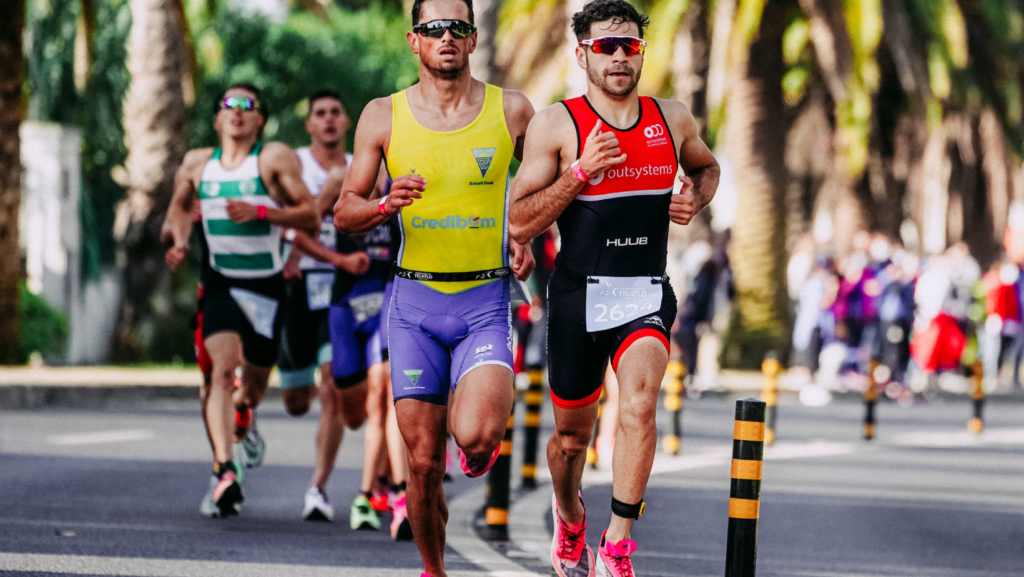When it comes to endurance sports, fueling the body is as crucial as the training itself. Imagine running a marathon on an empty stomach—sounds like a recipe for disaster, right? Nutrition isn’t just about avoiding hunger; it’s about optimizing performance and recovery. The right balance of carbs, proteins, and fats can turn an average athlete into a powerhouse.
Endurance Sport Nutrition
Endurance sport nutrition focuses on the specific dietary needs of athletes engaging in prolonged physical activities. Effective fueling plays a crucial role in enhancing performance and facilitating recovery.
Carbohydrates serve as the primary energy source, providing the glycogen necessary for sustained exercise. Consuming complex carbohydrates, such as whole grains and fruits, ensures a steady energy release.
Proteins contribute to muscle repair and recovery post-exercise. Incorporating lean protein sources, such as chicken, fish, and legumes, supports tissue health and boosts performance.
Fats also serve as an essential energy source, especially during long-duration activities. Athletes benefit from healthy fats found in nuts, seeds, avocados, and olive oil, which provide sustained energy.
Hydration cannot be overlooked in endurance sport nutrition. Maintaining fluid balance is essential to prevent dehydration during training and competition. Drinking water and electrolyte-rich beverages aids in sustaining performance and promoting recovery.
Timing of nutrient intake is vital. Athletes should consume a balanced meal 3 to 4 hours prior to exercise, followed by additional snacks or energy gels during extended activities. This strategic approach ensures optimal energy levels and enhances overall performance.
Monitoring individual needs is important in endurance sports. Each athlete’s requirements vary based on factors like body composition, exercise intensity, and duration. Tailoring nutrition plans to meet these personalized needs promotes optimal performance and recovery.
Prioritizing nutrient-dense foods supports enhanced energy and overall athletic performance. Utilizing this comprehensive approach to nutrition helps athletes achieve their best during training and competition.
Key Nutritional Components
Endurance athletes require a well-rounded diet to excel in their sports. Focusing on the right components helps boost performance and recovery.
Carbohydrates
Carbohydrates serve as the primary energy source during endurance activities. Athletes should prioritize complex carbohydrates like whole grains, fruits, and vegetables, as these foods provide sustained energy. Including adequate carbohydrates helps replenish glycogen stores, which are crucial for maintaining energy levels through prolonged exertion. Aiming for 60-70% of daily caloric intake from carbohydrates supports optimal performance. Consuming carbohydrate-rich snacks before, during, and after workouts aids in effective fueling and recovery.
Proteins
Proteins play a vital role in muscle repair and recovery for endurance athletes. Lean sources such as chicken, fish, legumes, and dairy are important for building and maintaining muscle mass. Establishing a protein intake of 1.2 to 1.4 grams per kilogram of body weight supports muscle recovery after strenuous activities. Timing protein consumption is key; athletes should incorporate it into meals and snacks post-exercise to maximize recovery. Incorporating diverse protein sources ensures a comprehensive amino acid profile, enhancing muscular strength.
Fats
Fats provide a concentrated energy source, particularly beneficial during prolonged endurance activities. Healthy fats found in avocados, nuts, seeds, and olive oil offer essential fatty acids that support overall health. Incorporating 20-35% of daily calories from fats fuels athletes during long sessions. Emphasizing unsaturated fats over saturated fats promotes heart health and improves performance. Proper fat intake helps sustain energy when carbohydrate stores become depleted, ensuring consistent performance throughout long endurance events.
Hydration Strategies
Maintaining proper hydration is essential in endurance sports. Fluid balance affects performance and recovery significantly.
Importance of Hydration
Hydration directly influences endurance and can prevent fatigue. Dehydration as low as 2% of body weight can impair performance. Athletes should aim to drink water consistently before, during, and after exercise. During prolonged activities, consuming 500 to 700 milliliters of fluids per hour is effective for maintaining hydration levels. Proper hydration improves cardiovascular function, temperature regulation, and nutrient transport. By prioritizing hydration, athletes support their stamina and overall health during strenuous workouts.
Electrolyte Management
Electrolytes play a critical role in maintaining fluid balance and muscle function. Sodium, potassium, calcium, and magnesium are key electrolytes that athletes frequently lose through sweat. During extended exercise, replacing electrolytes is vital for preventing muscle cramps and maintaining energy levels. Consuming sports drinks that contain 300 to 700 mg of sodium per liter is helpful for long-duration activities. Additionally, athletes may consider electrolyte tablets or powders as convenient options to maintain balance. Managing electrolyte intake ensures optimal performance and aids in recovery.
Pre-Event Nutrition
Pre-event nutrition plays a crucial role in an athlete’s performance. Proper planning enhances energy levels and optimizes endurance during competitions.
Meal Timing
Eating a balanced meal 3 to 4 hours before exercise proves effective for endurance athletes. This meal should consist of carbohydrates, lean proteins, and healthy fats to fuel the body. When closer to the event, consuming snacks or energy gels 30 to 60 minutes prior can provide an immediate energy boost. Timing nutrient intake aligns with individual metabolic rates and exercise intensity, thereby supporting optimal performance.
Food Choices
Carbohydrates must constitute 60-70% of an athlete’s daily caloric intake. Whole grains, fruits, and vegetables serve as excellent sources. Lean proteins, like chicken or fish, contribute to muscle repair and should be included post-exercise. Healthy fats from sources such as avocados and nuts offer sustained energy. Additionally, athletes should prioritize nutrient-dense foods to maximize their energy stores right before an endurance event.
During Event Nutrition
During endurance events, athletes must prioritize proper nutrition to maintain energy levels and optimize performance. Effective fueling strategies and appropriate energy products significantly impact endurance capabilities.
Fueling Strategies
Athletes should consume calories regularly during prolonged activities, aiming for 30 to 60 grams of carbohydrates per hour. Prioritizing energy gels, chews, or bars aids in quick digestion and absorption. Incorporating a balance of solid and liquid fuels enhances nutrient intake and digestion. Combining carbohydrates with small amounts of protein can also support sustained energy and minimize fatigue. Adjusting calorie intake based on exercise intensity and duration helps maintain optimal performance. Lastly, listening to the body’s signals can guide fueling decisions throughout the event.
Types of Energy Products
Energy gels provide concentrated carbohydrates needed for quick energy during activities. Chews offer a more substantial option, ideal for athletes who prefer chewing while on-the-go. Bars deliver a combination of carbs and proteins, though they may require more time for digestion. Sports drinks hydrate while providing essential electrolytes and carbohydrates, effectively replenishing lost fluids. Selecting products based on personal preference and digestibility can improve the overall fueling strategy. Understanding individual tolerance to different energy sources remains crucial for optimizing endurance and performance.
Post-Event Recovery
Post-event recovery focuses on restoring energy, repairing muscles, and rehydrating effectively after endurance activities. Proper nutrition post-exercise plays a critical role in these processes.
Recovery Meal Guidelines
Recovery meals should emphasize carbohydrates and proteins. Consuming complex carbohydrates like brown rice or quinoa replenishes glycogen stores. Aim for a ratio of 3:1 carbohydrates to protein in post-event meals to enhance recovery. For instance, a meal like a turkey sandwich on whole grain bread with a side of fruit serves as an effective option. Eating within 30 to 60 minutes post-exercise maximizes nutrient absorption. Incorporating nutrient-dense foods supports overall recovery. Hydration remains essential; athletes should consume water or an electrolyte-rich drink alongside recovery meals.
Supplementation
Supplementation can complement recovery efforts for endurance athletes. Protein powders enhance protein intake, aiding muscle repair and growth after strenuous workouts. Creatine may help improve recovery times between training sessions by supporting energy replenishment. Additionally, branched-chain amino acids (BCAAs) help reduce muscle soreness and support recovery. Choosing a multivitamin might address nutrient gaps in athletes’ diets. Supplements should serve as a supportive addition to, rather than a replacement for, a balanced diet. Athletes should consult a healthcare professional before starting any supplementation plan to ensure compatibility with their individual needs.
Performance and Recovery
Endurance athletes must prioritize nutrition and hydration as critical components of their training regimen. By understanding the specific dietary needs and timing of nutrient intake, they can significantly enhance their performance and recovery. Tailoring nutrition plans to individual requirements ensures that athletes can meet the demands of their sport effectively.
Incorporating a balanced mix of carbohydrates, proteins, and healthy fats will provide the energy needed for sustained efforts. Additionally, maintaining proper hydration and electrolyte balance is essential for peak performance. As athletes focus on their nutrition strategies, they’ll set themselves up for success both in training and competition.


